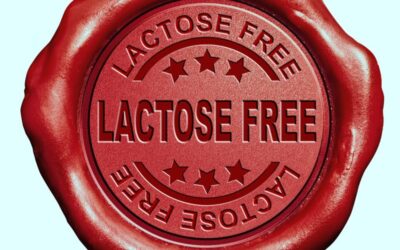Diverticular disease, including diverticulosis and diverticulitis, affects millions of people around the world. This is particularly prevalent in developed countries where low fibre diets are common. Improving diverticular disease with diet is crucial for its prevention and management. In this blog, I’ll explore the connection between diverticular disease, diet and IBS symptoms. Included are some valuable insights and tips for a healthier life. For more detailed information about constipation and IBS, see my other blogs.
What is diverticular disease?
Diverticular disease involves the formation of small pouches (diverticula) in the wall of the colon. Although the exact cause of diverticular disease is not fully understood, dietary habits play a significant role. Diverticular disease (DD) is more common in those who suffer constipation. Prevention is key to prevent the pouches becoming inflamed and developing into a condition known as diverticulitis. Sufferers of DD often have other digestive problems such as IBS. These are covered briefly in this blog, but see my other blogs relating to IBS, IBS treatment options and constipation for more information.
The role of diet
- Increasing fibre: A high fibre diet is the cornerstone of diverticular disease management. Fibre promotes regulate bowel movements and prevents constipation, a key factor in diverticula formation. Aim for at least 30 grams of fibre per day
- Fluid intake: It’s essential to drink plenty of water to complement your high fibre diet. Adequate hydration ensures that the stools are softened to prevent constipation. Aim for at least 8-10 glasses of water daily
- Practical dietary tips:
- Try choosing wholegrain cereals e.g. Weetabix, Branflakes, porridge, Special K, etc
- Change to wholemeal bread and pasta
- Add milled linseeds to porridge, cereals, salads, homemade cakes and biscuits
- Add pulses and vegetables to soups, stews and sauces
- Add dried fruit to cereals or desserts
- Eat the skins on fruit and vegetables
- Have fruit and vegetables as snacks
- Foods to limit: Some foods may worsen symptoms, so should be eaten in moderation or avoided, including:
- Too much red meat
- Processed foods
- High-sugar and high-fat foods
- Spicy foods
Probiotics
Pre- and probiotics naturally occur in our diet. When you have DD or IBS, including more of these foods in your diet can help improve symptoms. Foods such as bio-yoghurt, kefir and sauerkraut can help maintain a healthy gut microbiome and reduce inflammation in the colon. They can be beneficial in preventing flare ups of diverticulitis episodes too.
Diverticulitis
Sometimes the diverticula or pouches can become infected which results in painful symptoms. This is then called ‘diverticulitis’. If you have an episode of diverticulitis, seek medical advice via your GP. It is also advisable to avoid foods that are poorly digested until the symptoms resolve. Onions, fruit and vegetable skins, pips, seeds and nuts would be best avoided until your symptoms improve, then gradually return to a normal, high fibre diet.
Other lifestyle changes
Whilst making efforts to improving diverticular disease with diet, other lifestyle changes can help reduce the risk of diverticulitis flare-ups:
- Regular exercise: Physical activity can promote regular bowel movements and reduce pressure in the colon. Aim for at least 30 minutes of moderate exercise most days
- Weight management: Maintaining a healthy weight can reduce the risk of diverticular disease and related complications. Combine a balanced diet with regular exercise to achieve and maintain a healthy weight
- Stress management: Stress can exacerbate digestive issues. Techniques like meditation, yoga and deep breathing exercises can help manage stress and reduce the risk of diverticular disease symptoms
Do you have IBS symptoms?
You should see your GP if you think you have IBS symptoms. This is especially important if you’ve had a sudden change to your bowel habit or you experience rectal bleeding. Your GP may suggest some blood tests. These will be used to eliminate more serious reasons for your IBS symptoms. Prescribed or over-the-counter medication can help, but often this just masks the symptoms, at best. Making some changes to your diet may help address the root causes of IBS symptoms. The low FODMAP diet is an effective treatment for IBS. This research-based approach improves IBS symptoms in over 75% of sufferers. However, this diet can be tricky to do alone.
Help is at hand…
Cutting out groups of food isn’t recommended without expert guidance. Advice needs to be practical and to fit into your life, which is where an IBS dietitian who is trained in FODMAPs comes in! I have a wealth of experience in helping IBS sufferers. As an IBS Dietitian, I offer one-to-one advice, helping you through the phases of the low FODMAP diet. This will give you the confidence to finally manage your IBS. So, if you’d like to see if the low FODMAP diet is right for you, let’s chat. I’m an IBS Dietitian based in Cardiff, but work across the UK. I offer a free initial telephone consultation, so why not arrange a call today. Usually only 2 sessions are necessary, so what are you waiting for? Give me a call today.
Conclusion
Diverticular disease and diet are closely interconnected. A high fibre, balanced diet can play a pivotal role in preventing diverticular disease and managing its symptoms. Improving diverticular disease with diet is essential to reduce the risk of flare-ups and improve your overall quality of life.
Always consult with a healthcare professional or IBS Dietitian before making significant dietary changes, especially if you have diverticular disease or other medical conditions. I can provide tailored guidance and ensure that your diet aligns with your specific needs.
By adopting a wholesome diet and incorporating other healthy habits, you can take control of your diverticular disease and enjoy a more comfortable, symptom-free life. Remember, prevention is key and a nutritious diet is your first line of defence against this common digestive condition.




